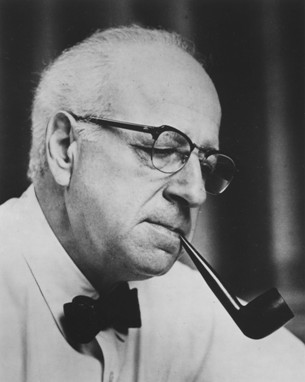Chicago Ensemble superbly serves rarities by Piston and Bridge

With all the arts foundations and performing organizations in the U.S., it’s amazing that the music of so many of our best 20th-century composers continues to lie neglected. One wouldn’t be surprised to learn that the average concertgoer believes that American music is comprised solely of Bernstein, Copland and Gershwin.
Give credit to Gerald Rizzer, pianist and artistic director of the Chicago Ensemble for keeping the flame alight for homegrown repertorial byways. On a typically generous and wide-ranging program Tuesday night at Fourth Presbyterian Church, two rarely heard piano quintets were presented, with most interest generated in that by Walter Piston.
Piston (1894-1976) continues to be one of our most inexplicably underperformed composers. His Piano Quintet, written in 1949, is fully characteristic of his finely crafted idiom, packing a lot of music into three movements of less than twenty minutes.
Rizzer and the string quartet (violinists Stephen Boe and Mathias Tacke, violist Paul Vanderwerf and cellist Andrew Snow) were fully in synch with Piston’s style, putting across the insistent contrapuntal vigor of the opening Allegro comodo as much as the syncopated energy of the closing movement (in which Pistons’s early years as dance-band clarinetist were vividly manifest).
The central Adagio is one of Piston’s most indelible inspirations with its rocky-road lyricism, and the flowing dark-hued introspection was sustained with fine concentration by Rizzer and colleagues.
Frank Bridge’s music is even more neglected than that of Piston, so it was equal pleasure to hear the English composer’s Piano Quintet (1912) to close the evening. This is a richly melodic work, cast in a rhapsodic Late Romantic style with a yearning theme in the slow movement that Rachamaninoff might have been proud of.
Here too, Rizzer and colleagues were completely engaged in a polished and impassioned performance, the bloom of the venue providing a warmth and big-boned resonance to the strings that suited the music.
The rest of the program was made up of vocal music, delivered in admirable fashion by soloist Stacy Eckert.
After an introductory Bach cantata aria (“Leg ich mich spate”) from Cantata No. 97, another rarity was in the offing with Ernest Chausson’s Chanson perpetuelle. The melancholy mélodie was the French composer’s last completed work, and Eckert delivered a powerful yet sensitive performance. Words could have been crisper at times, but the mezzo conveyed the evocative languor of the setting with equally atmospheric support from violinist Boe and colleagues.
Eckert lightened her voice and style effectively for Manuel de Falla’s Seven Popular Spanish Songs. With characterful vocalism she brought fire to the more florid settings, but the singer was at her best in the more inward songs, as with a lovely “Asturiana” and the lullaby “Nana,” rendered with tender expression. Rizzer lent equally committed keyboard support.
Fourth Presbyterian Church’s gleaming new Buchanan Chapel is an imposing space for performances, with its tall windows and soaring high ceilings. As one might expect, the acoustic is very live and proved a bit overwhelming Tuesday when sitting close, even with small chamber forces. A move toward the back provided for a more blended and pleasing sound for listening.
The Chicago Ensemble’s next program April 27 and 29 will include Max Reger’s Serenade No. 2, Beethoven’s Clarinet Trio in E flat Major, op. 38, Ronn Yedidia’s Black Snow and William Walton’s Piano Quartet. thechicagoensemble.org
Posted in Performances






Posted Jan 30, 2014 at 9:55 am by Odradek
Wish I’d been there! You’re right, Piston is a composer who should be played much more often.